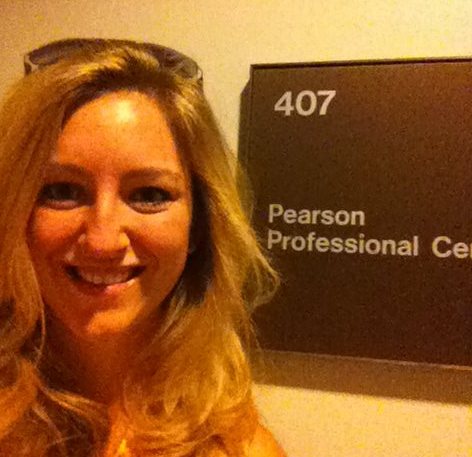Ally AttackED the GMAT: Mission Accomplished
I hit “submit” on my final GMAT question last Friday afternoon and instantly felt my pulse skyrocket. A few seconds felt like forever as I waited for my scores to populate on the screen. And when they did, it showed that eight weeks of studying had been productive. Like many TMMBA students had told me, it is possible to study for 1-2 months, work full time and still achieve competitive GMAT scores.
It’s been almost a week since my test date, which has given me time to decompress and wrap my head around what worked and what didn’t. Of course everyone studies differently and has different strengths, but here are the top 8 things I wish I knew when starting the test:
8. Practice Practice Practice. There’s always room for more practice tests- no matter how many you do. My Kaplan GMAT book came with five online practice tests and GMAC provides additional software (free) with two tests. I felt good about completing four of the practice tests, but I could have used even more.
7. Know when to take a deep breath. When I started reading questions without even comprehending what they were about, I knew I was starting to get overwhelmed. At this point, the only way for me to recover was to spare a few precious seconds, close my eyes, and take a deep breath. Don’t be afraid to sacrifice a small amount of time to refresh your brain and restart.
6. Don’t be a perfectionist. Early on, I tried to get every single GMAT question right on my practice tests. Obviously this wasn’t going to happen, and I was taking way too long to complete the tests. Finally, I started altering my GMAT strategy so that I was OK with missing some questions. I started to learn that there were certain types of questions (mixture problems, volume questions, combined work formulas) that were taking me five minutes to complete and my answer was still wrong. I had to learn where to cut my losses, randomly guess, and focus on the areas I knew.

Looking just a bit nervous outside of the testing center…
5. Focus on your weaknesses. From the very beginning, I knew that the quantitative portion would be my biggest struggle. I focused most of my early studying on this portion, but then began to work more on Integrate Reasoning, Analytical , and Verbal. Still, on test day, my scores came out very lopsided. I wish I would have spent more time on my areas that needed the most work.
4. Strategize your plan to attack the GMAT. And most importantly- stick to it. Make a study plan and hold yourself to it. One hour a day worked for me during the week, since it was a manageable time and kept my brain in GMAT mode throughout the whole week. Find what works for you and stay consistent- like vacations and skipping the gym, it’s tough to go back when you’ve taken too much time off.
3. Testing anxiety is real– prepare for it. Does it help you to visualize where you’ll be taking the test? Go visit the testing center a few days prior (my proctors confirmed they’ll let you see the facility). Practice with a timer going so that the clock doesn’t cause stress. Do whatever you can to eliminate surprises on test day so you can focus on the test and not your stress.
2. Drink water on test day. This one comes straight from my test center proctor. She told me that GMAT test takers are often too nervous to eat/drink, and they worry about the 8 minute breaks (you have plenty of time to use the bathroom). Thus, they don’t eat or drink before the test and as a result, occasionally faint in the testing center. Don’t make Jennifer pull out the smelling salts- make sure you prepare your body physically for the test.
And finally, the #1 thing I want TMMBA Applicants to know about the GMAT:
The GMAT isn’t everything. Sure, it’s easy to be consumed by this one test- I see how it happens! You devote so much time to studying and thinking about the GMAT, you automatically assume it must account for a huge part of your MBA application. Not true. As I mentioned in an earlier post, TMMBA evaluates applications holistically. This means that TMMBA takes the GMAT into consideration along with your professional experience, education, communication and interpersonal skills, and leadership potential. An extremely high GMAT score doesn’t guarantee admission and a low GMAT doesn’t automatically hurt your admittance. Keep the entire application in perspective as you get your scores back.
Of course there are many more tips that you may find useful as you start your GMAT journey. While I am certainly no expert on the test, I am always happy to talk with applicants about their GMAT questions or concerns, especially in regards to TMMBA admissions. Now that “Ally Attacks the GMAT” has come to a close, I seem to have a lot more time on my hands…
Best of luck to all you GMAT test takers- attack away!

